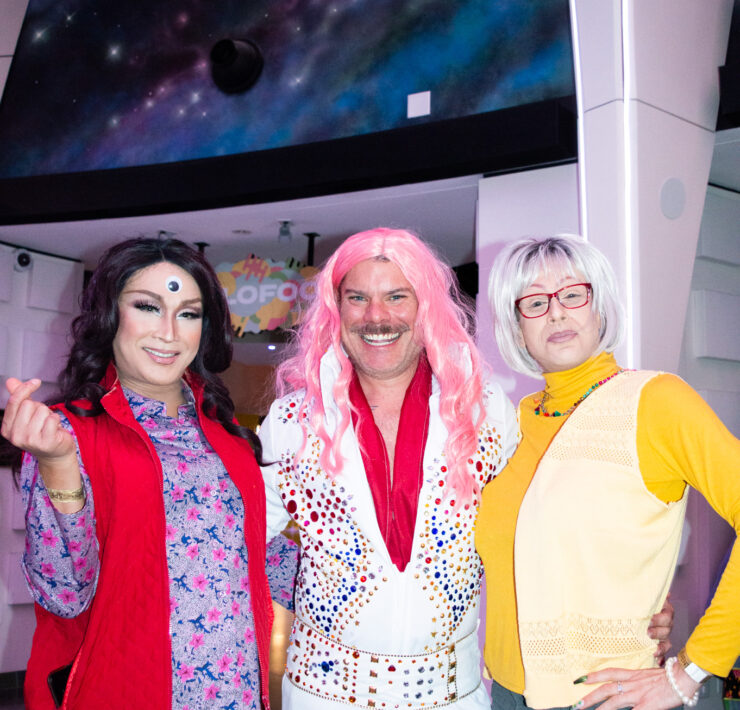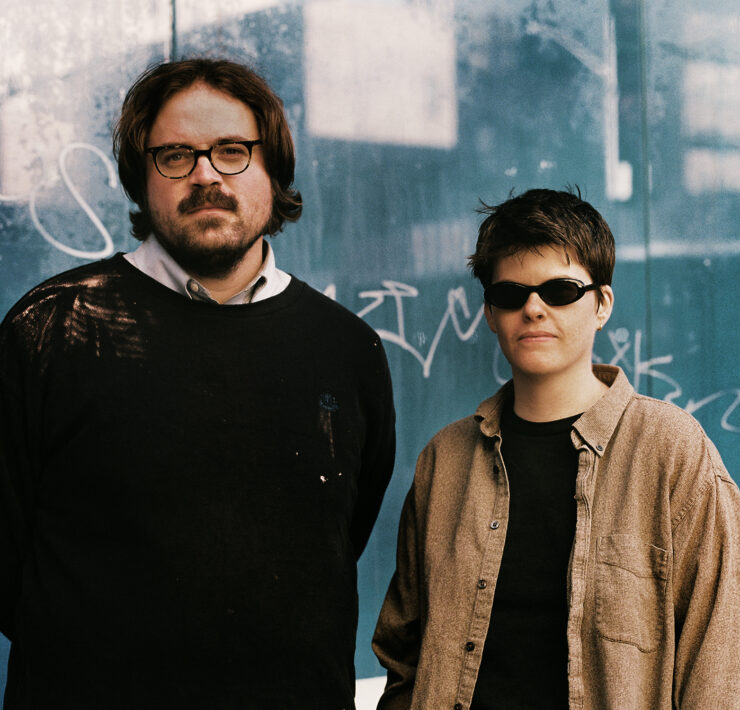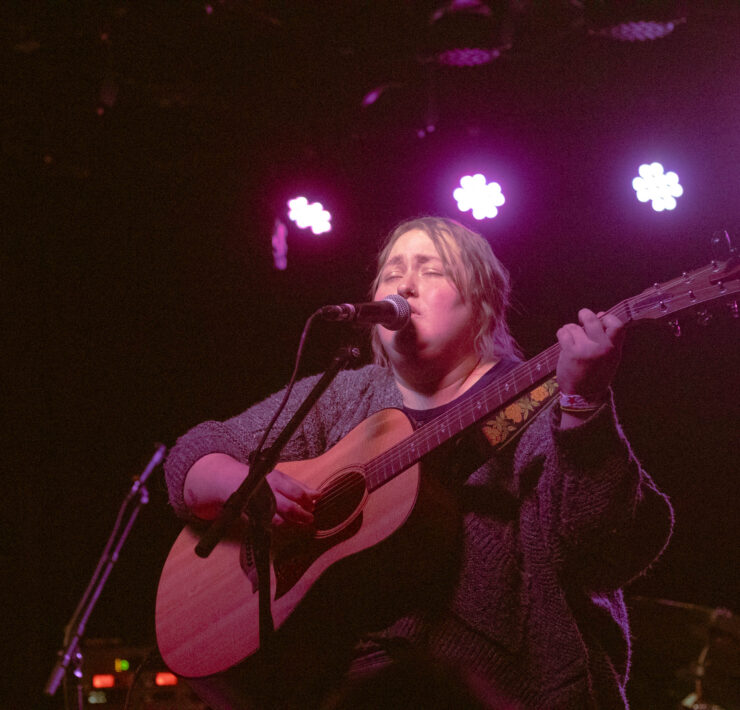A Conversation with Damon Cardasis About Saturday Church

Saturday Church (2018) opens with a funeral. Ulysses, played by Luka Kain, is mourning the death of his father. For any fourteen-year-old, losing a parent is a harrowing and lifechanging event, but for Ulysses, the trauma is compounded by his internal struggle with his own sexuality and gender identity.
In this film, first time writer-director Damon Cardasis paints a picture of a life full of complexity. Ulysses is experiencing the trials of youth that most of us can identify with; he is bullied; he falls in love, and he struggles to connect with and be accepted by his family. However, as a gay, and possibly trans, person of color, he is also experiencing things that only marginalized people understand. The interwoven nature of all the problems that Ulysses faces works to move us away from the caricatured version of trans life often portrayed in the media, to a tender and complex understanding. The movie gives voice to those in this community while it prompts empathy in those outside of it.

Ulysses lives with his mother, Amara, played by Margot Bingham, and brother, Abe, played by Jaylin Fletcher, both of whom love him deeply yet struggle to come to terms with his sexuality. To help his mother after the death of his father, Ulysses’ conservative Aunt Rose, played by Regina Taylor, also begins to spend a lot of time with the boys. While Amara and Abe are clearly confused and seemingly burdened by Ulysses’ effeminate disposition, Aunt Rose is outright hateful. She threatens him, and when he is caught with high heels in his closet, prompts him to run away.

This tumultuous home life is juxtaposed with the new world Ulysses discovers when he starts attending Saturday Church, a program for at-risk LGBTQ youth based on a real program at St. Luke in the Fields, a Manhattan-based Episcopal church. He meets people like himself, discovers Ball Culture and voguing, and begins to build greater confidence.
The drama of Saturday Church is punctuated by musical and dance numbers that work to enhance both the sense of an adolescent dreamland and to bring positivity to difficult, and sometimes dark, subject matter. This is fitting, because this story is, in the end, a happy one. It is a celebration of coming-of-age, of self-discovery, and of personal expression on one’s own terms.

To find out more about what motivated the creation of Saturday Church, how the movie was made, and how it is being received, OUT FRONT had the pleasure of speaking with Damon Cardasis himself.
Why do you think this particular coming-of-age story was so important to tell?
It’s important to tell diverse stories and stories of people that are marginalized, stories that are not seen on film or on TV.
My mother’s a priest and I’m a gay male, so religion and sexuality were always in my life, although my mother is a very progressive and liberal priest. She introduced me to the program at St. Luke in the Fields. It was through [volunteering at] the program that I started meeting the kids and hearing their stories. I was so inspired by them. They had gone through so many horrific things, yet they found strength, creativity, and a way to persevere. So that’s why I was inspired to tell the story.
How did you ensure authenticity in the telling of this story?
Well first and foremost, that came from the cast. We cast from within the community. It was difficult in terms of financing, because when you go to finance a film everyone wants to know what celebrity is in the film, but it was the right way to do it.
So [authenticity was ensured through] casting a lot of the kids who had also been to the program, and then it was also on me as a writer and director. In this situation my role was also sort of that of a student. I was very interested in it being a collaborative process with people from within the community, so I sent the script to Lee Soulja, who is the executive director of Black Pride, and then people from the Ball world. I had GLAD read it and I had Kate Borstein, a cast member and prominent gender-rights activist, read it, And then also, [to] the kids that are cast in it, I’d always say ‘If anything rings false let me know.’
What kind of feedback did you get from the cast members?
It’s been incredible. Everyone has been super supportive and excited. One of the kids reunited with her mother over the film. Many of them have said that they felt that it was their story being told, and it was the first time they’d seen themselves on screen. I’ve been getting tweets and Instagram messages from people from all over the world saying that it’s incredible to see themselves and their story being told. [This] was the most important thing to me, making sure the community felt that [Saturday Church] was telling their story accurately.
Saturday Church incorporates musical numbers and magical realism, which lend it a sense of whimsy. What motivated you to make these artistic choices?
I always knew when writing the script that there would be an element of magical realism; it was just trying to figure out how it would manifest itself. Then, when I was volunteering at the program [at St. Luke in the Fields], there was a cafeteria where the kids were getting social services and where they would eat. Adjacent to the cafeteria was a gymnasium, and it was interesting to me that when they were getting counselling, [a lot of the kids] would talk about these horrific and traumatic events in their lives, and then they would go into the gymnasium and there would be time to hang out, and a lot of the time the kids would dance or preform or vogue. It was seeing the two rooms next to each other and seeing the freedom and empowerment that the kids had while they were performing that let [Saturday Church] become a musical in my mind.
For my last question, I was going to ask what sort of reaction Saturday Church has had from the community that it is about. However, you’ve already answered that. So instead can you speak to the reaction of the larger LGBTQ community and the ally community?
Well, like I said, the Ball community and the community it represents have been extremely supportive, whether it is Lee Soulja telling everyone they should go, or people from different [Ball] houses saying how accurate it was and how it represented the community sensitively.
But it has also been interesting to see that there are a lot of gay guys that I think realized that even though we are all part of the LGBTQ family, not everybody is interacting the way they should. I think people just assume that we’re all in the same boat, but a trans person of color has a very different experience than I do as a gay, white male. I think it is important to be aware of each other’s struggles. [For example], gay marriage is very important for maybe gay men and women, but trans people and trans people of color are still [just] trying to survive a lot of the time and not be fired from jobs solely based on the fact that they are trans. A friend of mine who’s a gay man was so upset when he saw the movie [because] it dawned on him that he had not been as active in the [trans] community as he should have been. He actually gave the price of a movie ticket to a charity that helps trans youth.

Within the straight community, too, the movie [has also gotten an amazing response]. Mothers are really bonding to it. I think the relationship between [Ulysses] and his mother is really something that touches them. It has also been really nice to hear that from the straight allies, [including] straight, white men, who have said they went into this film not knowing how much it would touch them.
I like that [Saturday Church] has had more of a universal appeal. I always say that it’s a human story first and foremost. If you know what it’s like to fall in love, to be bullied, or to feel alone, you relate to it in a human way.










